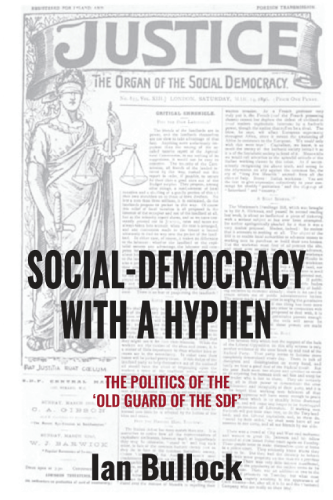SOCIAL-DEMOCRACY WITH A HYPHEN
Social-democracy with a hyphen
The Social-Democratic Federation (SDF) was the first organisation in Britain to promote Karl Marx's socialism. Yet it was as much latter-day Chartist as Marxist. Its predecessor, the Democratic Federation, began its programme with a demand for 'Adult Suffrage' and the SDF programme soon featured proportional representation and direct democracy; a total transformation of the political system..
In 1911, as many of the 'Old Guard' very much regretted later, it merged with others on the Left to form the British Socialist Party (BSP). The SDF was already divided over Hyndman's 'German menace' warnings and after the outbreak of war the irreconcilable 'pro-Ally' and 'internationalist' BSP factions became irreconcilable. When the latter achieved control in 1916 the former- largely made up of the self-described 'Old Guard of the SDF' – left. But they kept control of the weekly paper Justice.
In the 20th century, interest inevitably focussed almost exclusively on the continuing BSP which went on to form the largest segment of the Communist Party. This book explores the politics of their uncompromising rivals - largely the 'Old Guard' -who adamantly rejected the notion that the Bolsheviks had accomplished any sort of socialist revolution. They insisted that socialism could only be achieved via democracy. Nothing worthy of being called socialism was possible without it.
While relatively few on the Left were prepared to throw their lot in with Communism, even those most critical of Communist autocracy and oppression tended to acknowledge that at least 'private capitalism' had been abolished. But the revived SDF became the most ardent rejectors of everything Lenin and Co stood for from the forcible crushing of the Constituent Assembly onwards. But it failed to recruit many younger people as the 'Old Guard' began to die out. They had many shortcomings, made many serious mistakes and missed many opportunities. It is time now to re-examine its politics, critically but not totally dismissively.
